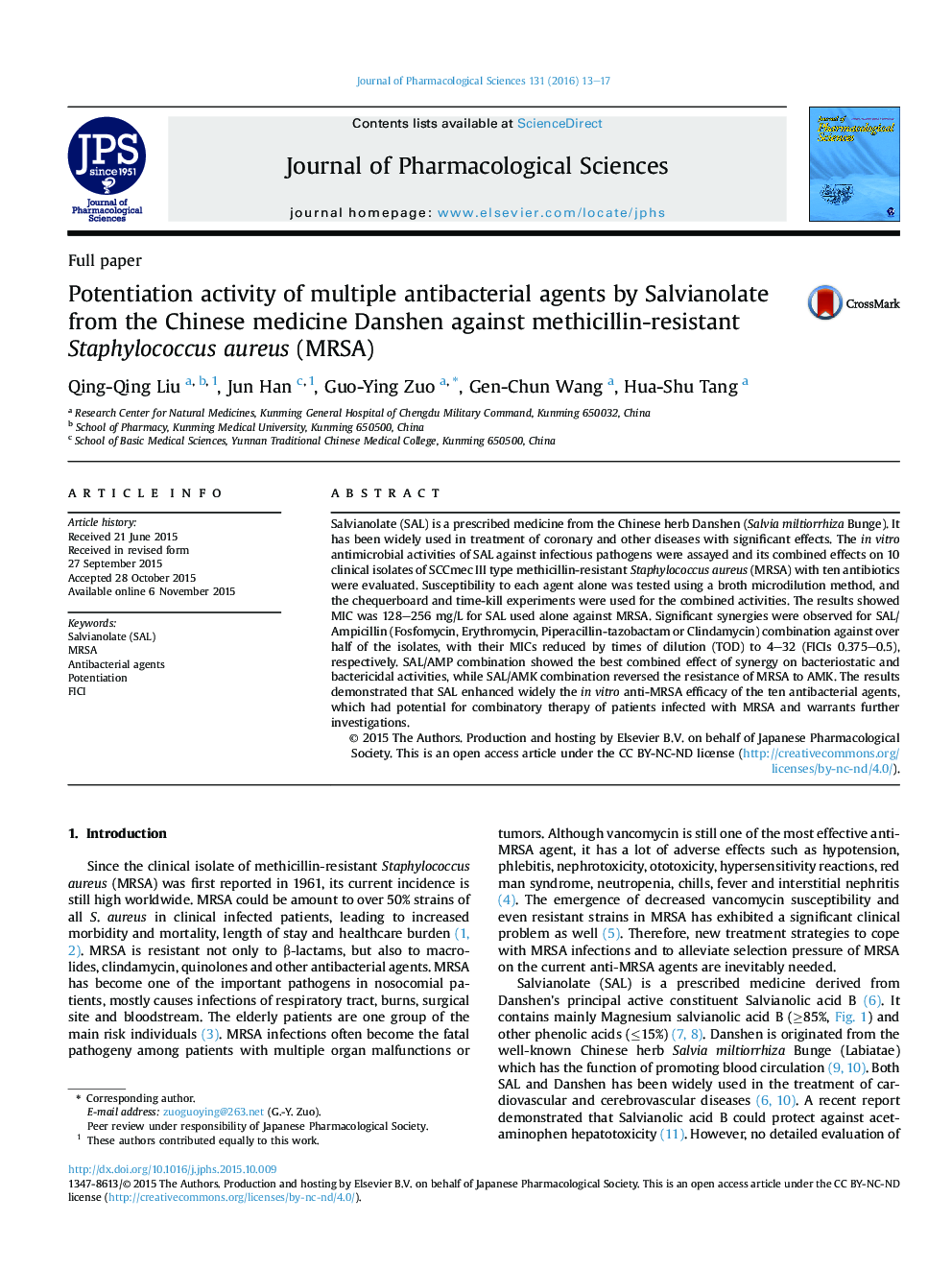| Article ID | Journal | Published Year | Pages | File Type |
|---|---|---|---|---|
| 2548667 | Journal of Pharmacological Sciences | 2016 | 5 Pages |
Salvianolate (SAL) is a prescribed medicine from the Chinese herb Danshen (Salvia miltiorrhiza Bunge). It has been widely used in treatment of coronary and other diseases with significant effects. The in vitro antimicrobial activities of SAL against infectious pathogens were assayed and its combined effects on 10 clinical isolates of SCCmec III type methicillin-resistant Staphylococcus aureus (MRSA) with ten antibiotics were evaluated. Susceptibility to each agent alone was tested using a broth microdilution method, and the chequerboard and time-kill experiments were used for the combined activities. The results showed MIC was 128–256 mg/L for SAL used alone against MRSA. Significant synergies were observed for SAL/Ampicillin (Fosfomycin, Erythromycin, Piperacillin-tazobactam or Clindamycin) combination against over half of the isolates, with their MICs reduced by times of dilution (TOD) to 4–32 (FICIs 0.375–0.5), respectively. SAL/AMP combination showed the best combined effect of synergy on bacteriostatic and bactericidal activities, while SAL/AMK combination reversed the resistance of MRSA to AMK. The results demonstrated that SAL enhanced widely the in vitro anti-MRSA efficacy of the ten antibacterial agents, which had potential for combinatory therapy of patients infected with MRSA and warrants further investigations.
